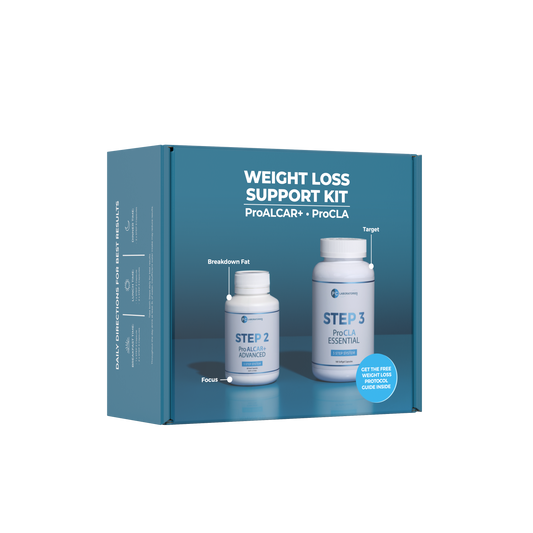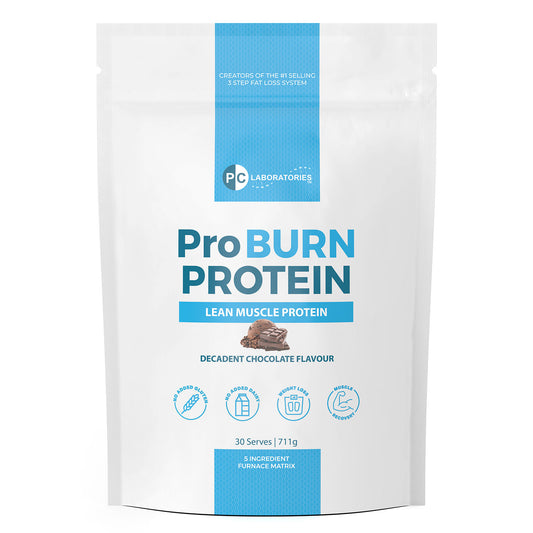When the chill sets in, many of us notice a familiar pattern: a few kilos creep on, our energy slows, and cravings for comfort foods intensify. This can be OK on a small scale, but what about big weight fluctuations in winter?
Gaining a few kilos in winter is something that’s wired into us to protect the body when food is supposedly scarce. This is not often the case in modern society, where plenty of food is available year-round. So, how can you manage your weight healthily while still enjoying the colder months?
With a little awareness, some smart nutritional strategies, and the right supplement support, winter doesn’t have to be a season of sluggishness and tight pants. Understanding why this seasonal shift happens can help you stay on track, feel more energised, and keep your health goals in check. We promise you won’t have to give up every comfort food you love.
Why Do We Gain Weight in Winter?
Biologically, our bodies are still tuned to ancient rhythms. Before modern conveniences and 24/7 supermarkets, winter meant scarcity. Historically, humans needed to store more body fat to survive the cold months when food was harder to find and energy expenditure was higher due to extreme conditions. Our bodies adapted by becoming more efficient at holding onto fat during this season.
One reason? Reduced sunlight exposure. Less sun means lower vitamin D and serotonin levels, which can affect mood and appetite regulation. There’s also a dip in melatonin production, which can mess with our sleep-wake cycles, impacting metabolism and increasing cravings.
Studies show that people are more likely to consume calorie-dense foods and move less in colder months. This all creates the perfect environment for weight gain if we’re not paying attention.
Nature’s Wisdom: Foods for All Seasons
Ever noticed how summer is abundant in hydrating fruits like watermelon, tomatoes, cucumbers, and berries? On the other hand, winter brings hearty vegetables like pumpkin, sweet potato, and dark leafy greens. This is nature’s way of providing the right type of nourishment for the weather conditions.
Summer produce is high in water content to help cool and hydrate us, and a little higher in quick energy. Winter vegetables are denser, richer in complex carbs and fibre to sustain us for longer in colder weather. Foods like root vegetables, cabbage, and citrus are not only warming but also support immune function during flu season. Citrus fruits, for example, peak in winter and are packed with vitamin C. Perfect for keeping your defences strong.
In ancestral times, this seasonal eating helped align our energy intake with our output. We were more active during summer, hunting, gathering, or farming. In winter, movement slowed, and energy reserves were crucial. Fast forward to today: central heating, Uber Eats, and endless snack options mean we’re no longer restricted by the seasons. Unfortunately, our biology hasn’t caught up to modern times yet.
Why Mindfulness Matters
With modern life offering year-round access to every food imaginable, it's easier than ever to overeat. This issue is amplified when we're less active and spending more time indoors. Comfort foods become emotional crutches for a stressful lifestyle, and exercise routines tend to take a back seat. This mismatch between intake and output is the primary reason winter weight gain creeps up on us.
To maintain healthy body composition year-round, we need to approach winter with more intention, not obsession. Nourishing ourselves with the right foods, staying active, and giving our bodies the support they need is the key.
Smart Nutrition Tips for Winter Weight Management
1. Choose High-Volume, Low-Calorie Foods
Soups, stews, and roasted veggies can be incredibly filling without being calorie bombs. Load up on fibrous vegetables like cabbage, zucchini, carrots, and cauliflower to stay satisfied.
2. Build Balanced Macro Plates
Aim for every meal to have a balance of protein, healthy fats, and complex carbs. A plate with lean protein, some good fats (like olive oil or avocado), and carbs from sweet potato or legumes helps stabilise blood sugar and curb cravings.
3. Watch Your Portions
In colder months, it’s easier to lose touch with hunger cues. Measuring out your portions (even occasionally) can help you stay on track. Especially with calorie-dense foods like nuts, cheese, and oils.
4. Don’t Skip Protein
Protein helps preserve lean muscle mass and keeps you full. Include a quality source in every meal—think eggs, tofu, chicken, fish, or a good collagen protein supplement.
5. Stick to Whole, Minimally Processed Foods
Comfort doesn’t have to mean processed. Go for meals you make at home with whole ingredients. That way, you control what goes in—and avoid excess sugars and additives that sneak into store-bought options.
Lifestyle Hacks to Stay Lean
> Sleep Deeper
Winter is the season for rest. Poor sleep affects hunger hormones like ghrelin and leptin, increasing appetite. Aim for 7–9 hours of quality sleep to keep your metabolism in check.
> Hydrate with Warm Fluids
We often drink less water in winter because we don’t feel as thirsty. Sip on warm lemon water, herbal teas, or broths to stay hydrated. Proper hydration supports metabolism and digestion.
> Strength Train Regularly
Muscle burns more calories at rest, and lifting weights is especially helpful in preserving lean mass during colder months when activity dips. Just 2–3 sessions a week make a difference.
> Keep Your Steps Up
Incidental movement matters. Try to hit 7,000–10,000 steps a day. Take calls on a walk, stretch during ad breaks, or pace while waiting for your coffee to brew.
> Take a Post-Meal Walk
We tend to be less insulin sensitive in winter, which means our bodies aren’t as efficient at processing sugar. Walking for just 10–15 minutes after meals can help regulate blood sugar and support weight management.
Supplements To Stay on Track
In addition to smart nutrition and movement, some supplements can give your metabolism a gentle nudge during winter. Here’s a look at a few well-researched options:
L-Carnitine: Naturally produced in the body, L-Carnitine helps transport fatty acids into your cells to be burned for energy. Supplementing can support fat metabolism, especially when combined with exercise. Try STEP 2 - ProALCAR+ Advanced capsules with breakfast and lunch for a quality source.
Green Tea Extract: Rich in catechins like EGCG, green tea extract has been shown to slightly increase fat oxidation and energy expenditure. It’s a great winter addition to a morning routine.
Galangal: A cousin of ginger, galangal has thermogenic properties and may support digestion and fat metabolism. It also adds a warming element that’s perfect for cold days. STEP 1 - ProBURN Advanced contains both Green Tea and Galangal extract for natural metabolism support.
Collagen Protein Powder: A high-quality collagen protein not only supports joints and skin but also boosts protein intake. Since protein is key for satiety and muscle maintenance, collagen can be a handy winter helper, especially when appetite for meat drops off. We use ProBURN Protein for a premium bovine collagen that tastes amazing.
Baby, It's Cold Outside
Winter doesn’t have to mean weight gain and misery. Take advantage of the shorter days and rest more, in preparation for the busier times in warm weather. With a bit of knowledge and the right strategies, you can stay energised, healthy, and in control, even when it’s dark and chilly outside.
Embrace the season by aligning with nature, fuelling your body wisely, and supporting it with smart lifestyle habits and supplements. Stay consistent, stay warm, and know that your body thrives when you treat it with care, no matter the season.








